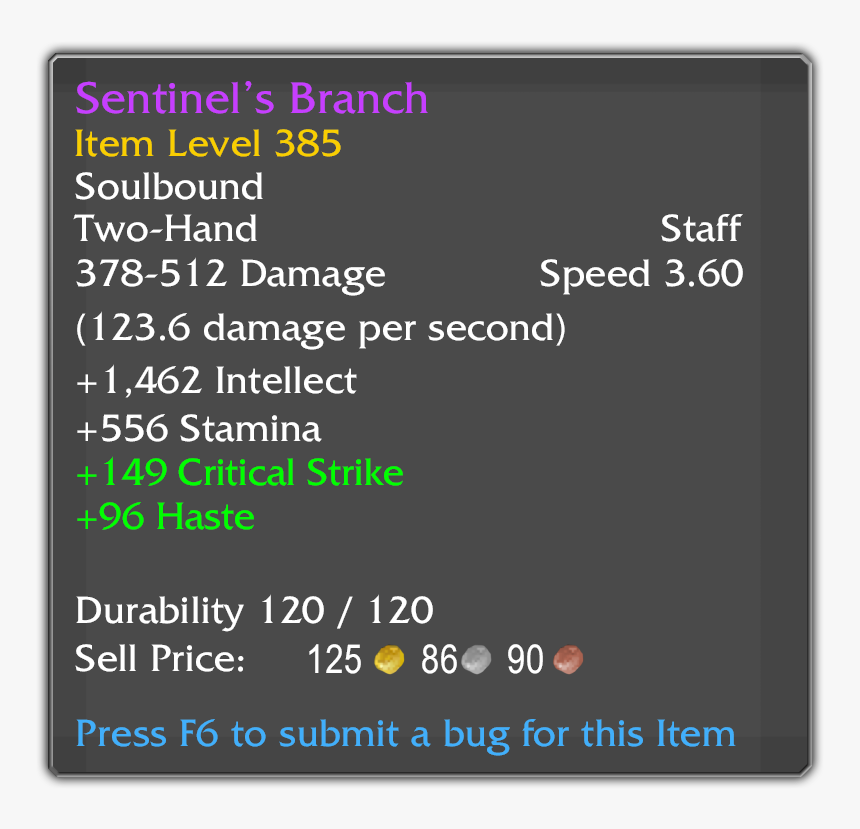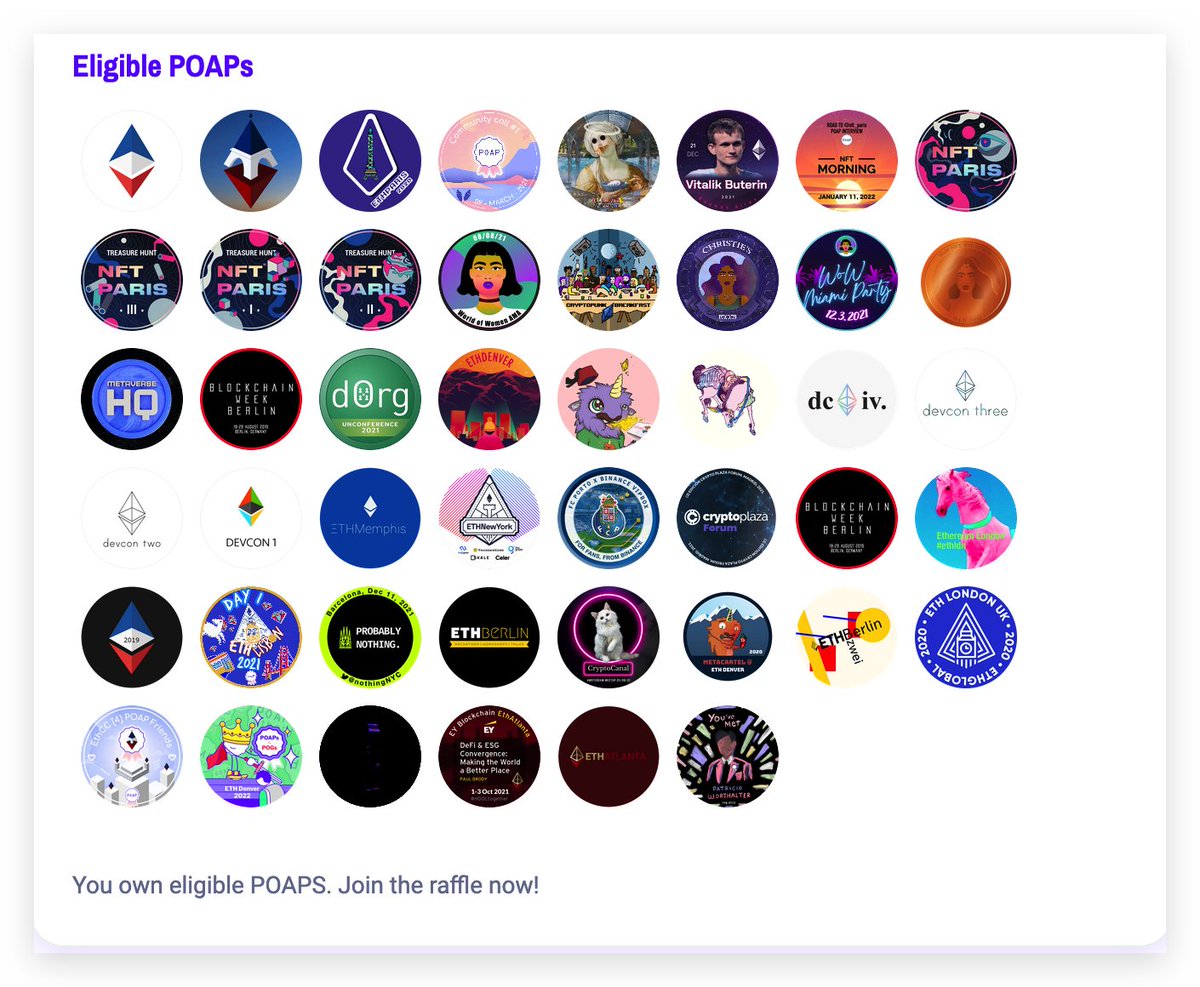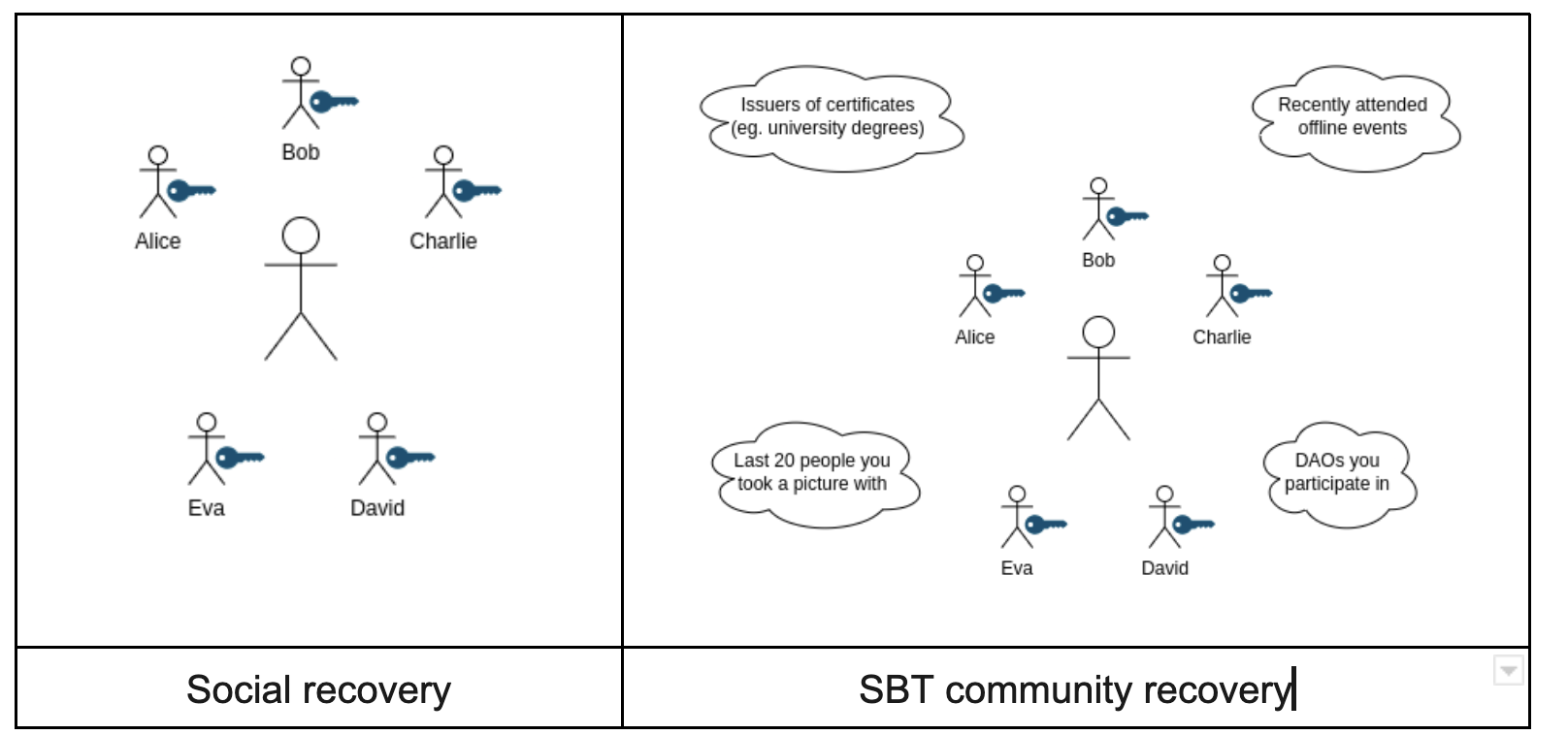Think of an NFT which is unique and just to yourselves. You cannot buy it from any marketplace, cannot sell it or transfer it to anyone for that matter. You may ask, why would that be essential? Is it even worth it? What is the use of such an NFT?
You may know NFTs as Non-fungible Tokens which are unique among themselves whereas SoulBound Tokens or SBTs are Non-transferable Non-tradable NFTs which are unique to only you yourselves and cannot be stolen/duplicated/showcased by any other person. Think of it as a digital identity or as an achievement/trophy which can earn you respect and many other benefits along the way.
What are SoulBound Tokens?
Proposed in May 2022 by Vitalik Buterin, economist Glen Weyl & lawyer Puja Ohlhaver, SoulBound Tokens are unique non-transferable, non-financialized, publicly-verifiable digital tokens for a Decentralized Society also known as “ DeSoc “ that can act as a type of CV for web3 users, showing an individual's memberships, credentials, and affiliations which are linked to private blockchain wallets called Souls.

Popularized by the game World of Warcraft where certain items and equipment become Soulbound when acquired. These are earned by defeating powerful monsters or completing difficult quests. These cannot be traded or mailed or auctioned to prevent twinking from occurring.
Items become Soulbound in certain ways like :
- Bind on Pickup (BoP)
- Bind on Equip (BoE)
- Bind on Use (BoU)
- Bind to Account (BoA)
What is a Decentralized Society?

Right now, Web3 is hyper-financialized and everything is about money. This would form an important building block for a Decentralized Society or DeSoc, which mostly depends upon Non-transferable social relationships of trust and takes a step back from the current over-financialized state of Web3.
Decentralized Society, or DeSoc, would lean on SBTs to allow Souls and communities to come together as emergent properties of each other to co-create multiple network goods and ideas, at a range of scales.
If implemented correctly, DeSoc can additionally pave the way to new property rights and governance mechanisms that “reward trust and cooperation while protecting networks from capture, extraction, and domination.” - Bankless
Altogether, DeSoc aspires Web3 to transform societies broadly, rather than merely financial systems.
How are SBTs created?
One might wonder, as these Soulbound tokens cannot be transferred or bought, how are these created? How can they be handed out if they cannot be transferred?
Well, there are quite a few ways :
- For starters, SBTs can be “self-certified” in their most basic form, similar to how we share information about ourselves in our CVs.
- Create a Proto-Soulbound NFT which can issue or destroy SBTs to other wallets.
- Create a Multi-Sig Community wallet which can issue SBTs to community members and can also revoke the SBTs or even recover them if lost.
- Create Proto-Souls or Proto-wallets and issue the SBTs directly to other Souls/wallets.
But also know that :
- A Soulbound Token cannot be transferred after they are received but possibly revocable-by-the-issuer.
- Once the SBTs enter your wallet, you cannot sell them or transfer them. They are bound to you.
- Once you receive a Soulbound Token, you hold it in a Soul wallet forever. Only the issuer can burn the Soulbound token.
Utilities of Soulbound Tokens
We might not have thought but these Soulbound Tokens have plenty of usecases not only in Web3 but also in our day-to-day life.
-
SBTs can be used by Educational Institutions to provide verifiable credentials like Certificates, Degrees or Doctorates which define the qualification of a person.
-
SBTs can be used as Citizenship passes or Identity documents like driving licenses, passports and voter IDs etc.
-
They can be given as Achievements for a person when he completes a certain task like how Guinness World Records gives out achievements for people who set those records.
There are still a lot of traditional utilities but we’re more interested in the Blockchain part, so let’s take a look.
Soulbound NFTs :

These can also be referred to as Non-transferable Non-fungible tokens ( NTT ) or Non-transferable Social tokens ( NTST )
This concept is closely related to EIP-1238 which was ignored at that time but things changed when Vitalik wrote about this recently saying “Soulbound NFTs should also have their place in the Metaverse and there is a large and underexplored design space for what NTTs should become.”
-
Gaming projects like DeQuest, Ever game and X-Borg use these NTSTs as badges and tokenized trophies for community and supporters.
-
NTSTs can be offered to community as Whitelist passes for those who actively contributed to the project and its community.
-
Easier ownership verification, like with SBTs creators can mint their NFTs directly from their Souls. The more the NTTs from that Soul, the more legitimate the NTTs become, allowing to build a reputation for those artists.
The best thing is that no one can buy off these NFTs and show them off. These hard-earned NTTs are proof that a person is actively contributing and should be rewarded. Implementing this parallel concept in both the NFT and Web3 Gaming world would open countless possibilities for the developers as a bonus to what they already offer through regular transferable NFTs.
DeFi Lending :
We already know that DeFi is all about money and un-collaterized lending is still a bit of a problem is not a problem in DeFi but it needs so much of improvement and Soulbound helps achieve better solutions in that aspect like..
-
Current DeFi lending platforms like Aave, Maker and Compound do not provide Under-collaterized loans due to its hostility and anonymity.
-
But with SBTs, DeFi protocols can issue loans by leveraging a Soul’s real-time relationships across several communities as a Social-credit score.
-
Now people need not stake an upfront collateral and can rather use their reputation in the form of SBTs.
The authors from SBT Whitepaper wrote “Loans and credit lines could be represented as non-transferable but revocable SBTs, so they are nested amongst a Soul’s other SBTs, until they are repaid and subsequently burned, or better yet, replaced with proof of repayment.”
Governance, DAOs and POAP :
Now to address the most common issues in Web3 like we know how DAOs and governance can impact a project and its community. Infact, it has become a pressing matter like how some people are manipulating DAOs and Governance policies for their own benefits. Soulbound can provide some solutions for these cases.

- Soul Drops, are proposed by Vitalik in the Whitepaper as these are like Airdrops where they will be provided to community members based on computations from the SBT or other tokens within a Soul.
- For example, projects can airdrop Governance tokens or rewards to people who attend DAO conferences or meetings and they have the say in Governance.
- Now this is where the POAP comes in. Proof Of Attendance Protocol ( POAP ) is a standard by which projects can send NFTs that represent the idea that the recipient personally participated in some event.
- POAP NFTs will only be handed out to a person if he/she attended the said event themselves and yes, these cannot be bought or transferred. These POAP NFTs gives the holder a few benefits like a part of Governance or access to Soul Drops.
- Also using these can minimize the risk like a single person can’t buy up all the governance tokens and manipulate the DAO votes for his benefits as the voting power will be given to the holders of these SBTs who genuinely works for the benefits of the project.
Security and Privacy :
Privacy and Security are the most key factors one has to consider when thinking about sustaining in Web3. We will discuss such issues here :
- Sybil Attack Protection will be implemented as these Sybil Attacks are one of the biggest threats faced by DAOs. We have discussed this above in Governance where a single person or a coordinated group buys up majority share of tokens and manipulate the DAO governance votes. These can be avoided using SBTs.

- No one can easily steal a person’s SBTs as they can be non-transferable. Even if a Soul wallet has been hacked and looted, there are certain ways to recover these stolen wallets. This can be done in some ways like -
- A social recovery method can be implemented where someone curates a list of guardians like institutions, individuals, or wallets - that can help a person reset their private keys. However, this system poses certain operational risks.
- Vitalik Buterin proposed a community recovery method where guardians are not curated but determined by a "maximally broad set of real-time relationships" a Soul has across different communities. The guardians can then help to recover the Soul for its owner. Hence, helping to remove the possibility of Soul theft or sale.
- Now coming to the Privacy aspect, as Vitalik said “If proof of humanity starts getting more adoption, privacy becomes even more important, as the alternative is all of our activity being mapped on-chain directly to a human face.”
- Unfortunately, only a few technical options are possible as of now :
- Store the item at an address which is the hash of (i) an index, (ii) the recipient address and (iii) a secret belonging to the recipient.
- You could reveal your secret to an interface that would then scan for all possible items that belong to you, but no one without your secret could see which items are yours.
- Publish a hash of a bunch of items, and give each recipient their Merkle branch.
- If a smart contract needs to check if you have an item of some type, you can provide a ZK-SNARK.
Privacy is an important part of making this kind of ecosystem work well. In some cases, the underlying thing that the item is representing is already public, and so there is no point in trying to add privacy. But in many other cases, users would not want to reveal everything that they have.
Soulbound in Gaming :
Now for my favorite part, Soulbound in Blockchain gaming which plays many key roles. To further elaborate, the purpose of SBTs is more or less to reinforce the idea of NFTs and make them much more personal by requiring users to complete something beforehand.

Be it participating in events like POAPs or as in World of Warcraft, completing certain tasks, battles or quests in Metaverse. The use cases are endless.
- Gamers can earn SBTs for hours of gameplay or online activity along with game wins, high scores and special achievements.
- Like, SBTs not only allow players to possess exclusive items but also to gain “respect” in the gaming communities for grinding hard and acquiring these items.
- Game projects, in particular, can utilize these SBTs as Non-monetary motivation for their users, adding a new exciting layer to their world without inflating the in-game currency.
- Furthermore, they can also offer the incentive of Soulbound NFTs alongside traditional in-game NFTs to attract a large number of players and encourage them to spend more time playing the game rather than spending. This would build up organic growth and interaction, which would then benefit the Metaverse as a whole due to its increased activity.
- This would also act as a “Marketing Strategy” in the Web3 world for new projects to develop and expand.
- Now for Guilds and DAOs and other organizations, the so-called reputation layer that a certain game builds can be the key to scalability and automation.
- Depending upon the needs of each party, a user’s skills and behavior can be recorded in the Metadata of Soulbound NFTs and can be used as an assessment tool.
I have seen the usage of Soulbound NFTs in some of the gaming projects like
- Ever game introduced the world’s first Soulbound DAO known as “Carrot DAO” and awarded Soulbound NFTs to its earliest community members.
- These NFTs are mostly given out to those who interacted with the game’s “Riddle Challenge” or progressed upto a certain point in the “Carrot game.”
- These SBTs or NTTs or NTSTs give early access in sales and in-game powerups for the hard grinded engaging community.
- A game questing platform called DeQuest , where you’re given a bunch of Quests and challenges which are related to other partner games where you complete tasks like reach a certain area in Sandbox, kill a certain number of enemies in Thetan Arena etc… and when you complete these challenges, the players will be awarded some points and Soulbound NFTs.
- DeQuest allows you to assign a role and educates and tasks the user with a Quiz which when answered correctly will reward points to climb leaderboards and NTSTs will be offered and these can be used as “Proof of Gameplay” and rewards the player with based on their achievements.
- In DeQuest, the player can equip their hard-earned SBTs to their characters and earn perks like private discord access, private beta testing and certain benefits of the kind.
- Now another game questing community-based guild type platform known as X-Borg in which the player joins a gaming guild of certain games and plays and reaches certain levels by completing certain tasks.
- When the player completes these tasks, Soulbound NFTs will be offered as Achievements and these literally have no value rather than a representation of the hard-earned achievements.
- Own - Showcase - Earn.
Advantages of Soulbound tokens
As we discussed several utilities of Soulbound in Web3, let’s discuss a few pros too :
- SBTs enable the creation of better trust relationships in decentralized environments.
- SBTs allow DeFi lending platforms to issue uncollateralized loans.
- SBTs can significantly improve the voting mechanisms in DAOs.
- SBTs can help in employing the right candidate for a job.
Cons of SBTs
Now now… when there are pros, there will be cons and these cons act as a barrier to achieving perfection. Let’s take a look at ‘em.
-
Privacy - Lots of info about these SBTs needs to be known to accurately calculate the correlation scores required for robust Decentralization and Governance.
- The solution provided by Authors of the Whitepaper was as follows “The sensitive info would be kept off-chain and provide a hash of that info and instead use a bunch of complex ZK protocols ( Zero Knowledge protocols )
-
Dupe Soulbound Owners - Some people acquire SBTs by acting as for the benefit of the community but instead they secretly maintain and use another primary wallet for their benefit.
-
Also SBTs may reveal too much sensitive information about a person. These are still new concepts and trying them out now without full knowledge may still be complicated.
-
SBTs are energy intensive and may come under criticism if they’re launched on Proof-of-work blockchains.
Conclusion
A common criticism in Web3 space is that its too money oriented. Making more items in the crypto space “Soulbound“ can be used to represent much more of who you are rather than what you can afford. Soulbound can take Crypto to the next level by optimizing Governance and community directed funding. Given that these SBTs exist on smart contracts, many crypto currencies might benefit due to SBTs and gain more traction.
In my opinion, Soulbound is still too early and there is too much to explore and to know for it to implement and withstand in Crypto. If we can pull this off, this opens a much wider door to blockchain being at the center of ecosystems that are collaborative and fun and most importantly not just about money.